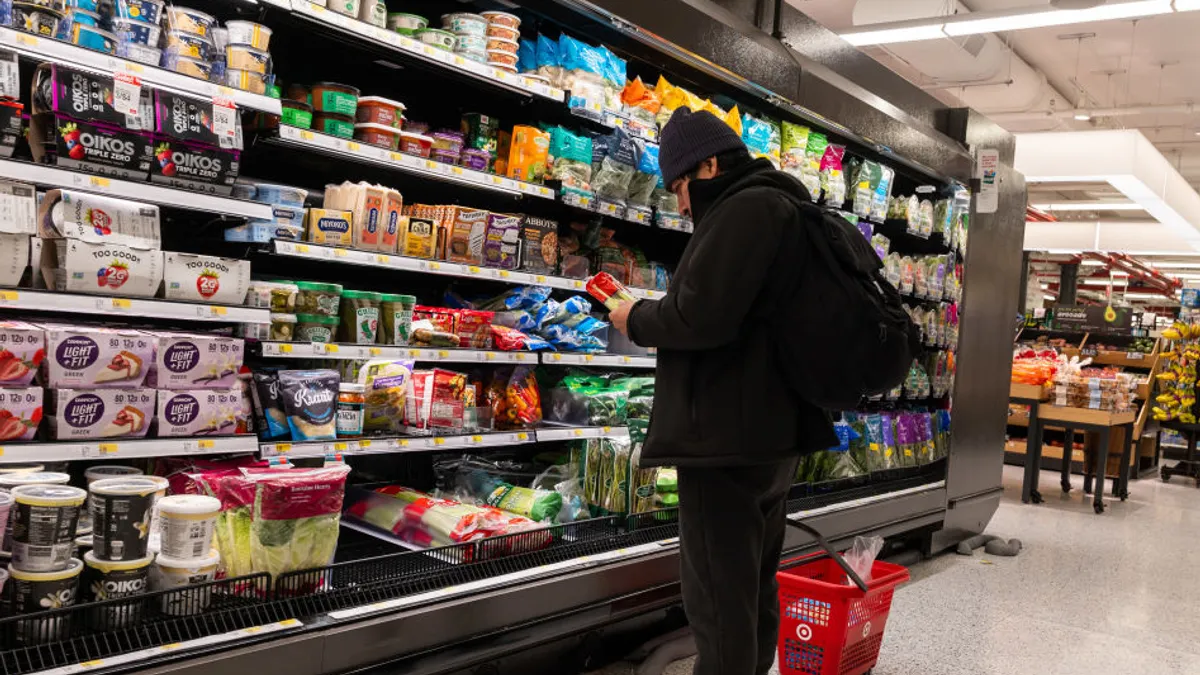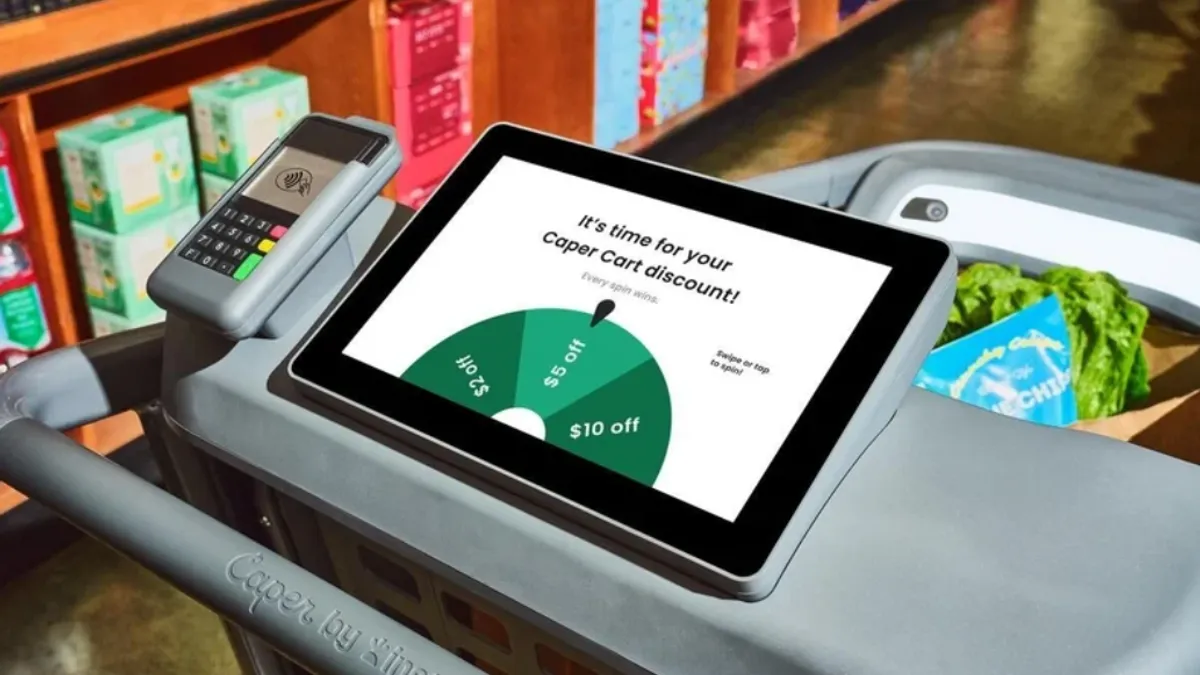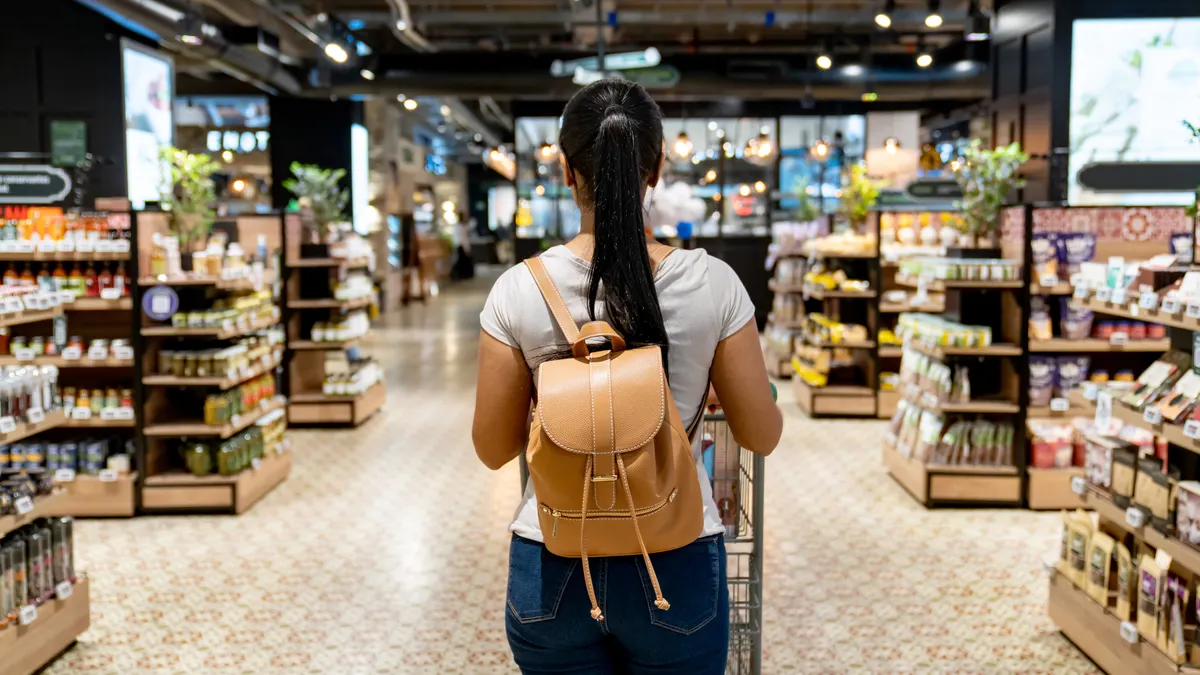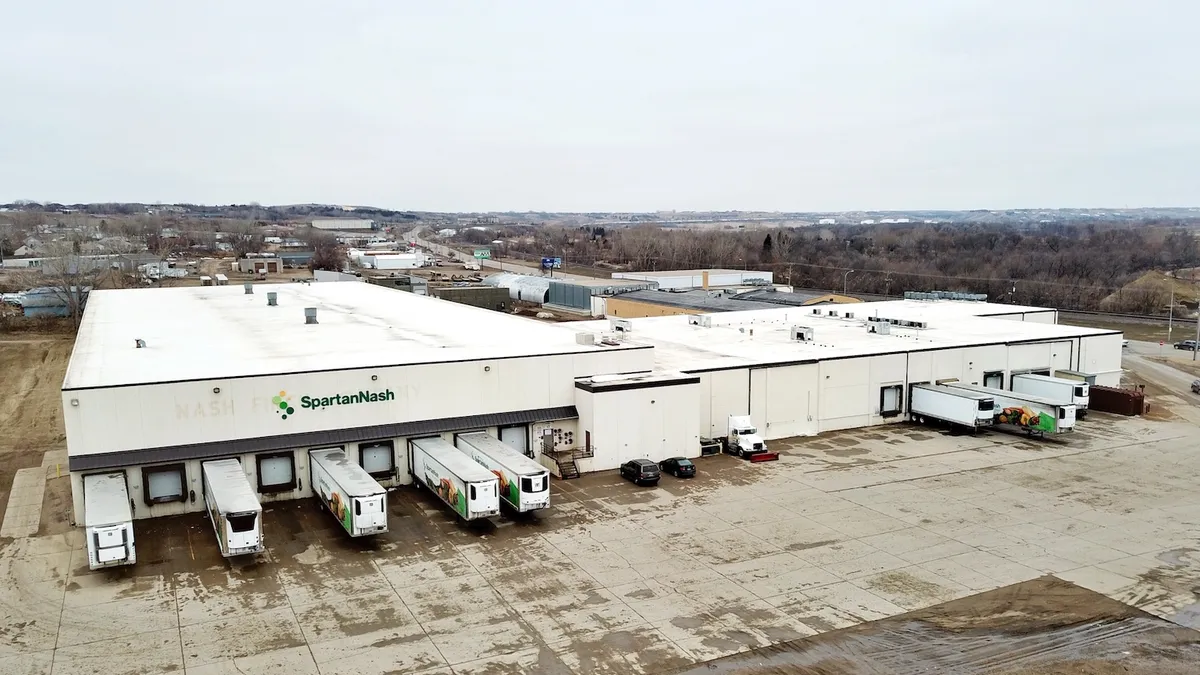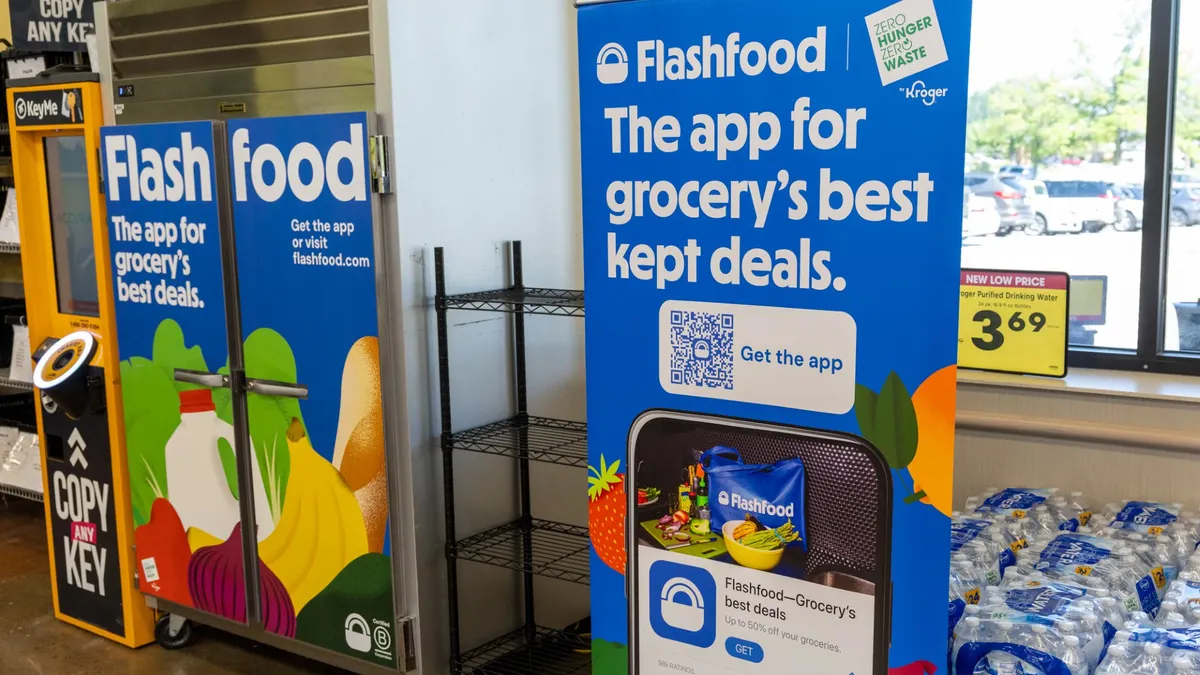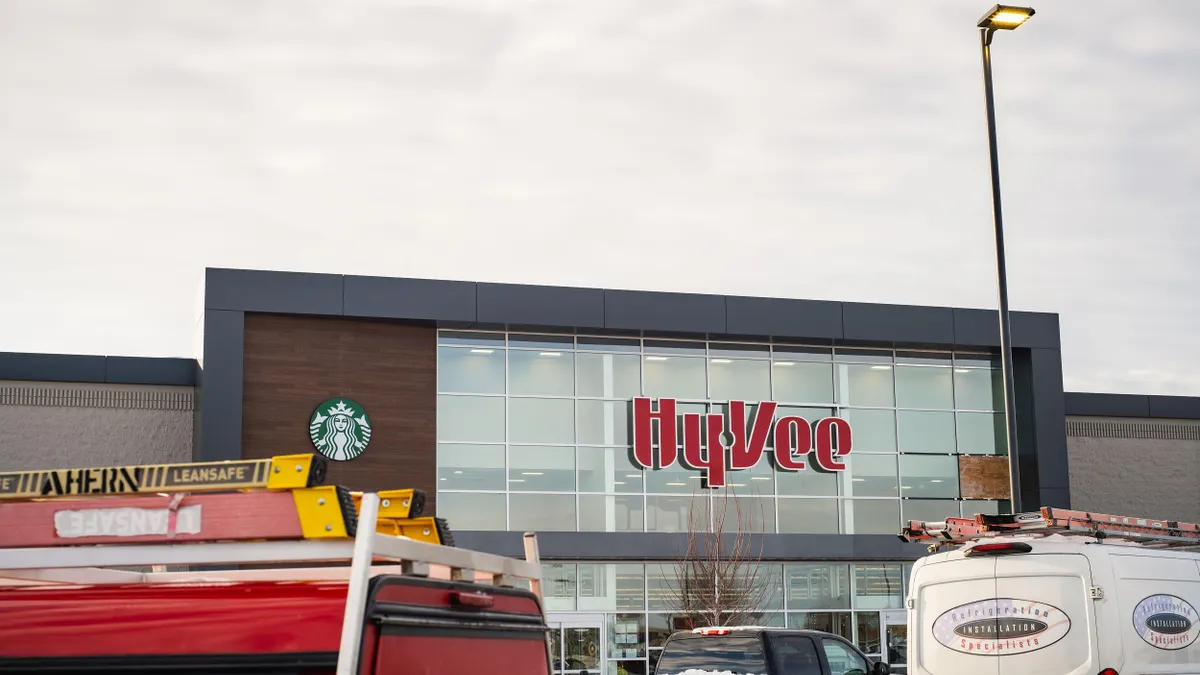As many traditional grocers attempt to integrate e-commerce and keep costs low without compromising the freshness of food, digital grocer Farmstead offers another approach.
Through the use of artificial intelligence and advanced logistics, the grocer guarantees delivery within 60 minutes — something only a few delivery services can do but none at Farmstead's low price. Shoppers pay $4.99 for one-hour delivery and $3.99 if consumers choose a three-hour window.
Although the service is limited to the Bay Area currently, CEO Pradeep Elankumaran sees potential to expand Farmstead to many other markets. Venture firms, for one, agree there's potential in the model. To date, the online grocer has raised $7.5 million in funding, including $2.2 million announced last week.
The birth of Farmstead came when Elankumaran and his former Yahoo co-worker Kevin Li realized there was a market for automated food delivery services that offered greater convenience over existing models, including same-day delivery companies like Instacart. Using social media to find other consumers in need of a service to fill this gap, the two received around 300 responses from people interested.
From the start, their goals were to use software to deliver groceries to customers much faster than any other company and to aggressively scale. Elankumaran said three years later, that’s exactly what has happened. Using cutting-edge software and AI-technology, he said Farmstead switched to real-time allowing them to maintain inventory and predict future deliveries so that they can support any size uptick in orders.
“We have this thesis that we could buy wholesale, do all of the operations ourselves and orchestrate them using software so that at the end of the day you're getting a bag to your doorsteps," he said. "Then we can stitch these deliveries into routes, use software to optimize them, connect this new wave of driver labor to it and then at the end of the day we will make some profit per order."
Using micro-warehouses to boost efficiency
Farmstead's delivery platform revolves around micro-warehouses that serve as small distribution centers at the center of cities, near customer delivery points. This way, consumers are receiving the freshest food in a fraction of the time offered by competitors.
Elankumaran says each Farmstead warehouse serves about 10 to 12 traditional grocery stores' worth of customers and costs less than one store to operate. Not only are they cheaper to operate, he said, but they also cost less to build — less than $100,000 — and reach profitability faster.
“We are looking to now spin up hundreds and eventually thousands of these hubs over the country,” he said.
Farmstead only carries around 1,000 products to keep costs low, though the assortment ranges far and wide, including meal kits, grocery products, organic and non-organic produce.
To further tap into consumer demand, Farmstead developed a specific category of bananas called “smoothie bananas” that were extra ripe for those who wanted to use them right away in smoothies. This allows Farmstead to sell the bananas most supermarkets would toss, Elankumaran said.
“This is something that only we can do because we talk to our customers in ways that grocers cannot. We have this direct line of communication,” he noted.
Artificial Intelligence to maximize profits
The grocer’s prized possession is its AI technology.
“Our AI-powered systems help us predict how much to keep in stock of any particular item and then by the end of it we are not buying a crazy amount of bananas," said Elankumaran. "We are only buying the bananas that we could sell and therefore have a lot less food waste than a supermarket which has computers guessing how much to keep in stock at any point in time."
Businesses that sell food are responsible for 40% of food waste in the country, with retailers contributing to majority of the waste, according to the Center for Biological Diversity's newest report. Even more troublesome is produce, with nearly 33% of all produce wasted, resulting in 1.3 billion tons of food and nearly $1 trillion annually, Chris Baker partner at management consulting firm Olivia Wyman told New Hope Network. Bananas are the biggest source of grocery store waste.
Balancing consumer demand with the need to keep food waste to a minimum can be tricky, but according to Elankumaran, Farmstead's artificial intelligence software allows the grocer to do just that.
However, at least one industry expert isn't quite sold on the value of the company's AI.
“While it is a technology company powered by AI, it’s hard for me to see where the AI gives them a significant economic advantage,” Bill Bishop, chief architect at consulting firm Brick Meets Click, told Grocery Dive.
He says Farmstead's business model is very similar to Los Angeles-based Yummy.com’s. Although Yummy doesn't use AI, it's still able to deliver products within 30 minutes to consumers — even faster than Farmstead.
“It’s hard to see how Farmstead can generate additional savings beyond those that others are already capturing," Bishop added. "For example, the cost of overstocking at the store is relatively small and the fact that they sell directly from farms and individual brands doesn't eliminate the need to consolidate the product."
How delivery holds up against competitors
Another difference between Farmstead and a traditional grocer is the sourcing methods. Elankumaran said the company has the ability to go through multiple supply lines to purchase the freshest produce, which is usually sent to restaurants or other small-scale grocers.
However, delivery is key in maintaining the freshness of produce and living up to its speedy delivery pledge.
In the Bay area, deliveries are fulfilled by Postmates or independent contractors driving their own cars. Farmstead pays independent contractors $16 to $18 an hour.
The company isn’t too worried about pressure from competitors like Thrive Market and AmazonFresh. The digital grocer also isn't worried about Walmart or other brick-and-mortar retailers launching their own delivery operations. This is because Elankumaran believes Farmstead's speedy, technology-focused model puts it in a better position than these other players.
“Grocers just aren’t that organized for e-commerce delivery,” said Elankumaran. “Their operational efficiency is typically low when picking online grocery orders. Virtually none of the traditional grocers could meet Uber’s high bar of perfectly packing orders within 10-15 minutes, and then getting them into waiting Uber vehicles within another 1-2 minutes. Relying on grocers to pick and pack orders that fast is a recipe for disaster. We won’t see Uber delivering for traditional grocers anytime soon.”
At the recent Groceryshop conference in Las Vegas, Farmstead announced an expansion of a partnership with autonomous delivery company Udelv that began in September. This comes on the heels of supermarket giants Kroger and Walmart announcing their autonomous delivery pilots. Prior to Farmstead, San Francisco-based Udelv has partnered with Buy For Less markets in Oklahoma City.
"We envision a future where autonomous delivery is the norm in our space rather than the exception. This technology will help us be more efficient, enabling us to get fresh groceries into our customers’ homes even faster and cheaper than before."

Pradeep Elankumaran
CEO and co-founder, Farmstead
In order for consumers to receive deliveries from Udelv, they must opt in during the online checkout process. Once the vehicle pulls up to their door, the consumer will receive a code via SMS. They can then enter that code into the vehicle to retrieve their grocery bags.
“We envision a future where autonomous delivery is the norm in our space rather than the exception. This technology will help us be more efficient, enabling us to get fresh groceries into our customers’ homes even faster and cheaper than before," said Elankumaran in a release timed to the announcement.
But according to accounts published in the San Francisco Chronicle, autonomous delivery has turned off some shoppers in early tests. Customers told the Chronicle their orders are often heavy or they can't always leave the house even for a few moments to go pick them up.
Although autonomous delivery is starting to take off, experts aren’t sure it is the future of grocery delivery.
“Farmstead is betting heavily on the growth of on-demand delivery and while online grocery ordering is projected to grow rapidly, I don’t think delivery will ultimately be the dominant form of fulfillment in support of this expansion,” said Bishop.
Others, meanwhile, see plenty of runway ahead for Farmstead and believe the company will have an impact on the larger industry.
“Farmstead is turning the grocery game on its head, leveraging technology to obtain huge efficiency gains,” said Stuart Peterson, Founder of ARTIS Labs, one of the VC firms investing in Farmstead, in a press release. “The work Farmstead is doing has wide implications not only for consumer-facing grocery buying but for the whole supply chain.”







